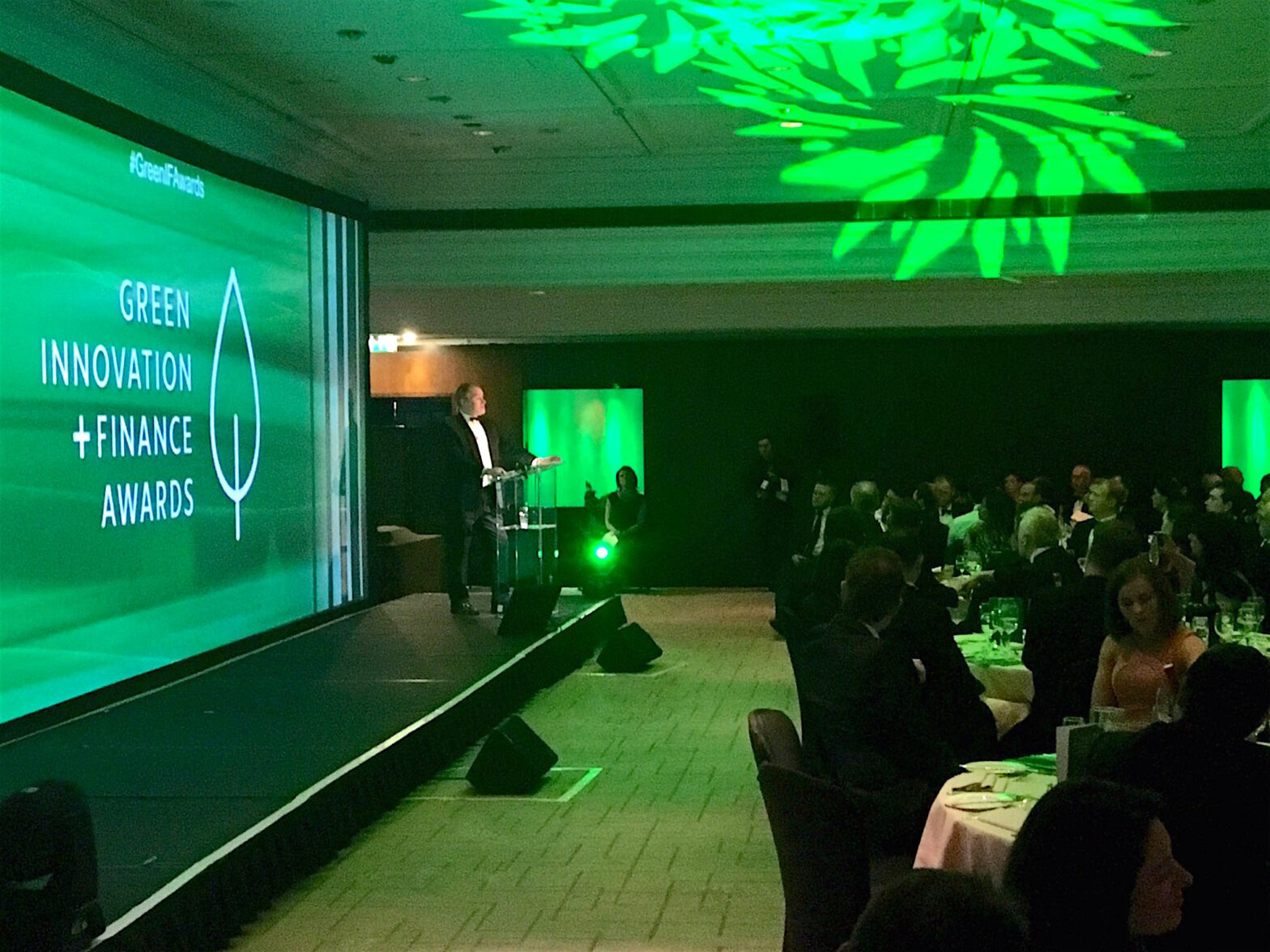The earth is fast becoming too hot to handle. Carbon emissions are rising globally by around three per cent a year, causing ice caps to melt and bring about ever more unnatural weather patterns. If global warming carries on like this, then by 2050 entire continents may become uninhabitable, forcing millions of people to make a stark choice: migrate or perish.
Such an end-of-days scenario may seem like the stuff of blockbuster movies or sci-fi novels, but in this instance, these cataclysmic snapshots of the future originate from scientists who gathered at a summit in Copenhagen to discuss the brute consequences of climate change.
For eco-entrepreneur Jeremy Leggett, the executive chairman of renewable energy concern Solarcentury, the evidence is irrefutable about the rapidly unfolding ecological disaster. Happily, this former oil man who said goodbye to BP and Shell to campaign for Greenpeace, believes the technology is available to provide an alternative to rapidly diminishing fossil fuels – and stop the earth from overheating in the process.
‘We have no other option. Where else do we go other than to look at new technology?’ he says. ‘It’s all about how quickly we can accelerate this inevitable switch to renewables. In that respect, there is a massive chance for visionary politicians to lead the way.’
Instead, myopia prevails, at least in the UK. ‘We had the Low Carbon Summit and everyone gets it at the rhetorical level – Brown, Miliband, Mandelson. They are all very good at rhetoric. But what are we doing? We are having another consultation through to July and then there will be some kind of low carbon industry strategy.
‘Well, for God’s sake, we should be on a war footing and making choices now. Other countries are. Between them, the US, Japan, Germany and South Korea have £60 billion of new money on the table for renewables and to increase energy efficiency in buildings. That is being deployed right now and you can see the immediate impact this is having on these markets. In Britain, we have lost the ability to take meaningful decisions and execute them.’
Seeing is not believing
It’s a point taken up by David Fitzsimmons, the CEO of renewable energy concern Novera Energy, which won Company of the Year. ‘What the government has been doing to date is to take lots of steps in the right direction. The renewable energy policy that was published for consultation in the middle of last year did address the key issues.
‘The big opportunity is to stimulate the right kind of economic activity and that is where this government and others can build on what is already being initiated.’
Leggett, for one, is optimistic that the election of Barack Obama as US president can make the necessary difference. ‘If the Obama experience works out as so many hope and dream, then many things will become possible. There won’t be any hiding place for politicians. No one can spin anything out of the mess we are in at the moment; the politicians who are prepared to lead will get picked ahead of the others.’
Green pioneers
For UK entrepreneurs operating in the renewable and cleantech space, waiting for government action is making life additionally hard. Each of the winners who gathered for the awards at the Natural History Museum in London, are demonstrating the ingenuity, both in terms of innovation and commercial survival, to keep moving forward.
At Solarcentury, Leggett says he has been pleased to see that more people are being persuaded by the benefits of solar power. The company has sales of £28 million and has grown annually by just under 50 per cent for the past four years. A fourth-round £15 million injection of VC backing at the tail end of 2007 has helped maintain that growth, allowing for product innovation and for Leggett to bring in a senior management team to ease some of the responsibilities of running the business.
For Fitzsimmons at Novera, the standout achievement has been to start building a 30-megawatt wind farm in Yorkshire. ‘We are in production at the moment and we are getting the turbines commissioned one by one. As far as we are aware, this is the fastest that a wind farm has gone from the planning application to production in the UK. It’s taken just over two-and-a-half years.’
Fitzsimmons attributes the speed of the deal to careful negotiations with various stakeholders and local council officials. Once the first wind farm is up and running this year, the site’s power will be the equivalent to providing energy for 13,400 homes. Two more sites have been identified for development, this time in Scotland, and those should be constructed over the next couple of years.
A sea change
Peter Fraenkel, technical director at Marine Current Turbines – which won New Energy Rising Star of the Year – is similarly pleased at the company’s progress by building the world’s largest wave turbine off the coast of Northern Ireland. ‘The second biggest is still our other one. We have a world lead which is, I think, several years ahead of any of our competitors.’
It is the ability to deliver that matters for Fraenkel. ‘Our project is four times bigger than anything else in terms of power. It’s grid connected and it is a commercial prototype. What we have created is the first of its kind anywhere in the world. In order to be a commercial prototype, it had to be that kind of size, otherwise it wouldn’t be economic.’
‘We should be on a war footing’
Marine Current Turbines received private funding in 2002 and also received money from the Department of Trade and Industry (now renamed the UK Department for Business, Enterprise and Regulatory Reform), and it was also backed by European Commission funds back in 1998. ‘We couldn’t raise the private money until we had the public funds,’ says Fraenkel.
Since setting up the company, around £25 million has been invested in the technology, of which the government has put up £7 million. Raising finance for a business operating in a new sector would be hard at the best of times, but Fraenkel notes that a number of less-than-scrupulous characters are making it particularly tough.
‘I think that people have taken leave of their senses – there are an awful lot of barrow boys around who think they’re on to a nice little earner. So they put up a nice website with pretty pictures and think people will throw money at them, which is what is actually happening. It causes great confusion and makes it difficult for us to raise money.’
While not begrudging funds to any company that makes a genuine contribution to the sector, Fraenkel reasons that many are ‘messing around’ and suggests that some operators seem to be taking a fast and loose approach to intellectual property rights. ‘We have a clear run on patents and we have a particularly large patent portfolio. The majority of our would-be competition are well behaved but there are a couple of exceptions, which is a concern. There are people in this day and age who think that patents don’t have any meaning.’
Again, proper legislation could help weed out the rogue operators.
Wired for sound
Financing isn’t such an issue for David Baillie, the CEO of CamSemi, which won University Spin-Out of the Year for its high-efficiency, low standby power supply components for wall adaptors and chip support for transistors. The company is motoring along after a $26 million round of venture capital backing last year.
‘The financing allows you to be a little bit – but not overly – calm about the business environment,’ explains Baillie. ‘It has given us a little buffer so that we don’t have to react quite so hard to market changes as other businesses. While saying that, like most companies, we have drawn in our horns and been very careful with our cash.’
The Cambridge spin-out is a light operation, with 50 people spread between offices in the UK, Taiwan and China. Baillie observes that five years from now he would like to see the company ‘as a leading player in the zero to 50 watt power supply space’.
Tomorrow is too late
Leggett, Fraenkel and Baillie insist that everything has to move faster and be on a larger scale, whereby the different industries are working in unison to a government-backed green agenda. Leggett says that, at Solarcentury, for its technology to have a meaningful environmental impact it would have ‘to be hooked up with energy efficient [developers], so we are routinely putting up zero carbon buildings as a multimillion, ideally billion pound-turnover company in the next five years’.
Marine Current Turbines’ Fraenkel admits that for tide energy to make a contribution to the UK’s energy demands, there need to be at least ‘a thousand or so’ machines in the water. ‘But then, on the other hand, every new machine that goes in will have an impact in that we’re getting closer to the thousand machines that we need,’ he says.
It comes back to political will. As Fraenkel says: ‘There are no examples in the past of any energy technologies that were not government backed. If you think of jet engines and steam turbines, they have all received government support, although mostly for military purposes. Unfortunately, renewables don’t have much in the way of military value.’
That climate change is on the agenda of policy-makers shouldn’t be such a surprise given the expected disasters afflicting the planet in the 21st century.
‘Don’t get me wrong, governments are acting,’ says CamSemi’s Baillie. ‘The decisions on what we build in the next five years will be the ones that affect us for the next 50…There are both mandatory rules and codes of conduct that are moving, but the question is: “Can it be done faster?” This is probably as much a political question as anything else.’
One that requires answering with a little more urgency.






